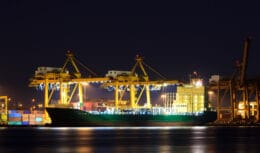

Senai oferece cursos de Inglês totalmente gratuitos e online (EAD), sem processo seletivo e com certificado garantido, disponíveis para todo o Brasil
19 de abril de 2024 —
Flavia Marinho

Cielo abre processo seletivo URGENTE com 151 vagas de emprego para atuação de forma presencial, híbrida e home office
19 de abril de 2024 —
Valdemar Medeiros

Escola Virtual do Governo oferece 612 cursos online EAD, totalmente gratuitos e com certificado garantido nas áreas da construção civil, logística, beleza, direito, indústria, saúde e muito mais
19 de abril de 2024 —
Flavia Marinho














